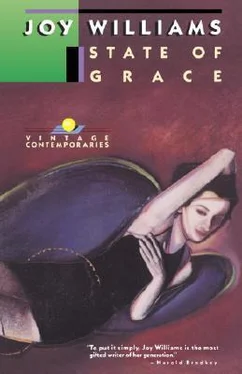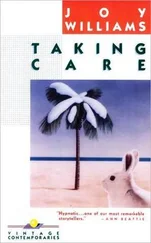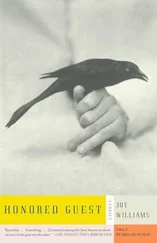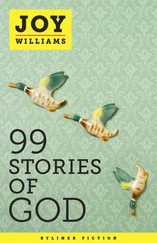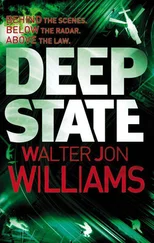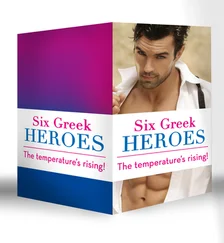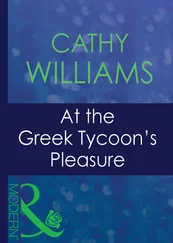Joy Williams - State of Grace
Здесь есть возможность читать онлайн «Joy Williams - State of Grace» весь текст электронной книги совершенно бесплатно (целиком полную версию без сокращений). В некоторых случаях можно слушать аудио, скачать через торрент в формате fb2 и присутствует краткое содержание. Год выпуска: 2011, Издательство: Vintage, Жанр: Современная проза, на английском языке. Описание произведения, (предисловие) а так же отзывы посетителей доступны на портале библиотеки ЛибКат.
- Название:State of Grace
- Автор:
- Издательство:Vintage
- Жанр:
- Год:2011
- ISBN:нет данных
- Рейтинг книги:5 / 5. Голосов: 1
-
Избранное:Добавить в избранное
- Отзывы:
-
Ваша оценка:
- 100
- 1
- 2
- 3
- 4
- 5
State of Grace: краткое содержание, описание и аннотация
Предлагаем к чтению аннотацию, описание, краткое содержание или предисловие (зависит от того, что написал сам автор книги «State of Grace»). Если вы не нашли необходимую информацию о книге — напишите в комментариях, мы постараемся отыскать её.
State of Grace — читать онлайн бесплатно полную книгу (весь текст) целиком
Ниже представлен текст книги, разбитый по страницам. Система сохранения места последней прочитанной страницы, позволяет с удобством читать онлайн бесплатно книгу «State of Grace», без необходимости каждый раз заново искать на чём Вы остановились. Поставьте закладку, и сможете в любой момент перейти на страницу, на которой закончили чтение.
Интервал:
Закладка:
Now he was just trying desperately to hold onto his horse which his wife wanted to sell so she could get a gas barbecue. He was working too much and suffering too much, he said. He had a bellyache all the time. Sometimes it hurt him to piss. His wife told him that was from the horse. He’d liked to have strangled her.
He worked all day driving the cab and then he drove his truck for the county all spring and summer through the mosquito and tourist season. He drove it in the three hours before dawn. He drove it now. It was five o’clock in the morning. He was in the college compound, smoking a black cigar and pulling on the lever he’d installed that released the malathion. His headlights picked up a raccoon hustling across the winding road in front of him. He tromped on the accelerator but the engine just grunted. “Oh Christ,” he said, grinding his teeth. He shot out a cloud of chemicals and spit out the cigar.
The truck moved along. It had been made from a car, the back lopped off, pine planking wedged on the chassis where the cylinders were mounted. A green and benignant truck, one headlight kicked in, something winglike fluttering against the exposed radiator grid. “Oh Christ, Christ,” Barfield roared. He turned the wheel so hard that for one awesome moment he thought he’d broken it off, and moved the wheels up over the sidewalk curb for a hundred yards or so, bouncing and weaving toward the nigger boy who ambled along there like a fool, his hands fanned out as though he were holding a plate of hors d’oeuvres. Barfield had worked this route for weeks, licensed by the county, being paid by the county and using their gasoline and equipment but wearing out his own truck and wearing down his balls and his own, what he considered to be, innate good nature for nothing more than he could see than another piece of crap his wife would buy and set up in the house. He owed 673 dollars to the finance company and his old lady was having the change. He was so sick of it all he’d liked to have spit and the final indignity had become the first for each morning before the sun came up as he was doing his honest work he would come across this loitering nigger doing his party time right before his eyes.
He was afraid of making too much of a racket. He didn’t want any complaints. But every day he wanted to make a mulched stump of Corinthian Brown.
AL GLICK’S SIGN on the edge of his junk-yard says
Anyone caught beyond this point without my permission had better have settled for his soul to go to God because his ass belongs to me
The sign troubles Corinthian Brown even though it is his job to be daily beyond the point that Glick refers to. Al Glick killed his first and last wife by pushing her face too hard into a hot pan of her cooking that he didn’t care for. He broke a waitress’ hand in an argument over the price of a slice of pizza and he put a boy’s eye out in a fight about pinball bowling. So each early morning that Corinthian enters the cars’ graveyard, which is still as any graveyard, he can feel himself getting shot. He can feel it and he can see his head popping off and rolling into the morning wet weeds where they’d shovel it up like a rabid squirrel’s, put it in a box and send it up to the laboratory in Tallahassee. Each morning he moves past the sign, coming or going away again, he knows it’s his last moment. They are going to dismember him. He’s going to hear a snap behind him and they’re going to be on him like white on rice, turning him every which way but loose.
But nothing of the sort happens. Corinthian stands intact within Glick’s boundaries. The dogs trot up and sniff him thoroughly for he has the smell on him of all of Bryant’s Beasts. Corinthian works continually. He is a wakeful watchful boy. He seldom sleeps. He has probably slept only one hundred hours in his whole life. He moves through the dogs which wind themselves around his legs. Each morning, the dogs suffer the same indignation, hysteria and delight as they glut themselves on the scents of the Beasts. Corinthian reeks of feed and droppings, fish and mice, hair, hide, scaled backs and feathers. Corinthian is truly a phenomenon, a representation of the natural world trapped, an example of the basic made bizarre by cages. But those who speak are not aware of his existence.
Now it is not that Corinthian is himself caged. It is not that he does not move out into the world. He has places where he goes. He has his routes. He uses the movie theatre, the County Book-Mobile, Super-M Drugs, where he buys lotions for his skin’s disease, and a café where he eats supper and breakfast in the morning. He leaves Bryant’s Beasts while it is still dark, for Bryant begins each day early and eagerly. Bryant believes that each day is the one that will turn the tide , that will make him a man of means . He is a big bouncing man with fine pale hair and big teeth. He has many frustrations but he remains hopeful. He loves jujubes. He chews on them all day long. One thing that annoys Bryant is that he can buy jujubes only in very tiny boxes that seem to be only one-sixth full. He would like to have hundreds of them available at all times but the fulfillment of this small desire does not seem to be in the near future. Another thing he wants is to be allowed to become a member of the Chamber of Commerce. This is remote. The thought of Bryant becoming one of their own makes the members drink too much and speak unseemly. Bryant’s Beasts is just within the city’s limits, a maverick on the Gulf’s backwash, a tin and broken blemish which drives the mayor and commissioners mad. “Jest let that pissant make one mistake and I’ll close him up,” the mayor says several times a week. But Bryant is a modest citizen, obeying the laws. All of his toilets function. His animals make no noise. No one has ever gotten sick on his snacks. The only thing that the commissioners and the Chamber of Commerce can do is hope that the place will burn down. Then they can forbid him to build it up again because of the zoning.
In the meanwhile, Bryant comes to his establishment early, rakes up the beach and sets up for his patrons. He sells mementos, nut logs and jellies. He rents beach umbrellas, rubber rafts, and three bungalows, day, week or season. Bryant would naturally like his Beasts to become a tourist must but visitors are uninterested in anything which is not indigenous. After all, they might as well have stayed at home if they’re not to see something indigenous. The Beasts are the weak link in Bryant’s business. His driving range is patronized as is his chili-dog and soft ice-cream stand. His paddle boats are popular. It is the Beasts that no one wants to pay to see even though the price is only seventy-five cents. He has a black bear, a llama, a leopard, a buffalo, a coyote, three deer and two egg-eating snakes. He has two dusky sharks, a bull shark, a tank of turtles and cow-nose skates and two walking catfish, which should alone guarantee half a hundred visitors a day. He has parrots, an ostrich, a kestrel and a vulture. Almost no one comes to see them. Days go by without anyone having observed the Beasts, but nightly, Corinthian, their caretaker, watches them and leaves with his watching pure and unbothered. For no one watches Corinthian. Or would give a penny for what he saw.
Corinthian knows that no one watching or listening is one of dying’s little tricks on life. No one’s yet come up with any tricks life might have on dying. The Beasts fill Corinthian up. Each night he comes to them empty. He’s been sitting in the daylight, thinking and reading and dreaming and trying to fill himself up. He’s read about the animals. He knows everything they’re supposed to do naturally. Their games and pridefulnesses, their diets and habits, their methods of mating and fighting and hiding. He knows the ostrich, for example, with its tiny wings and heavy legs has adapted itself to running and not to flight. Now in its tiny arena, with its straw and washtubs of soft vegetables, it seems to have adapted itself only to dying. Corinthian reads and studies. None of the rules given apply to the Beasts. He has even read Darwin who says all animals feel a sense of wonder and curiosity . But the Beasts’ mouths spill open with their own fur and feathers. They bite themselves mortally and without pain. Corinthian sees very clearly that they’ve begun to gnaw on themselves, even the vulture. They are trying to eat themselves up. Corinthian knows what this terrible hunger is like and tries to apologize to them for it, pushing out his hands to touch them. They do not respond. Sometimes a creature moves its muzzle slowly across the floor. Sometimes a bird moves a talon just an inch farther up the bar. Nothing more happens. Corinthian’s medicine of conscientious regard fails. It grieves him to think that his watching the animals doesn’t make any difference, that his eye seeing is worse than no eye at all because it has nowhere to turn but inward where the beasts, now twice bereft, vanish. They are suffering creatures, suffering his intrusion. And they go on. The continuing is all that remains to them. They have achieved what people think they themselves hope for. They cannot perish any more.
Читать дальшеИнтервал:
Закладка:
Похожие книги на «State of Grace»
Представляем Вашему вниманию похожие книги на «State of Grace» списком для выбора. Мы отобрали схожую по названию и смыслу литературу в надежде предоставить читателям больше вариантов отыскать новые, интересные, ещё непрочитанные произведения.
Обсуждение, отзывы о книге «State of Grace» и просто собственные мнения читателей. Оставьте ваши комментарии, напишите, что Вы думаете о произведении, его смысле или главных героях. Укажите что конкретно понравилось, а что нет, и почему Вы так считаете.
